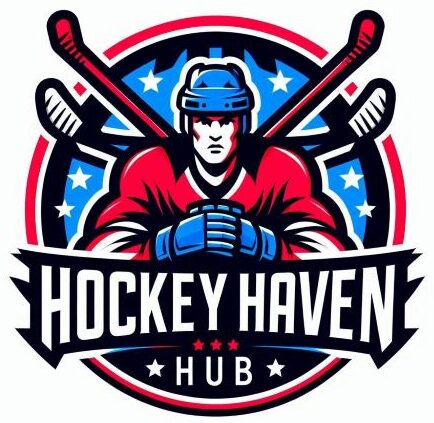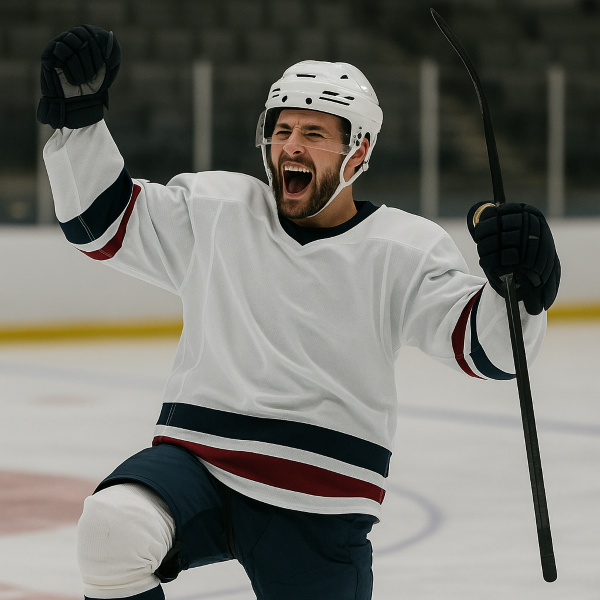Overcoming Common Challenges in Hockey: A Guide to Mental Mastery, Persistence, and Confidence
Hockey is as much a mental game as it is physical. While countless hours on the ice sharpen your skills, it’s the inner battles—mental blocks, fear of failure, and inconsistent confidence—that often separate good players from great ones. Whether you’re a young athlete dreaming of a professional career or a seasoned player striving to level up, overcoming these common challenges is key to long-term success.
Let’s break down the core areas that every hockey player should master to overcome obstacles and unlock their true potential.
Mastering the Mind: Overcoming Mental Blocks in Hockey
Identifying the Root Causes of Mental Blocks
Mental blocks can be subtle or overwhelming, showing up as hesitation, underperformance, or lack of confidence during crucial moments. The most common culprits include:
- Stress: Juggling expectations from coaches, parents, and teammates.
- Fear of Failure: Worrying about making mistakes or letting others down.
- Pressure to Succeed: Internal or external pressure to “prove yourself” can paralyze decision-making and affect gameplay.
Recognizing these mental triggers is the first step in defusing them. Many players internalize these pressures, which only compounds anxiety and creates a cycle of self-doubt.
Techniques for Fostering Mental Resilience
Resilience is the ability to bounce back, focus under pressure, and play your best despite adversity. Two foundational practices to build this are:
- Mindfulness: Simple techniques like breathing exercises or body scans help center your awareness. Try focusing on your breath for two minutes before stepping onto the ice—it primes your brain for clarity.
- Visualization: Imagine yourself completing passes, scoring, or defending successfully. The brain interprets visualized experiences almost like real ones, improving your neural pathways for performance.
Incorporating Routine Mental Exercises in Training
Just as you wouldn’t skip warm-ups before practice, mental training needs regularity. Consider implementing these into your routine:
- Pre-practice focus rituals (breathing, meditation)
- Game-day visualization sessions
- Post-game reflections to identify progress and areas for mental adjustment
Keeping a performance journal can also be an excellent tool for tracking mindset changes and growth over time.
The Role of Sports Psychology in Hockey
For players dealing with persistent performance anxiety, motivation loss, or fear-based play, working with a sports psychologist can be transformative. These professionals tailor mental skills training to your unique personality, position, and game situations.
Key areas where sports psychology shines in hockey include:
- Managing pre-game nerves
- Rebounding from poor performances
- Handling long-term injuries mentally
- Enhancing leadership and team communication
Persistence Pays Off: Elevating Your Game Through Consistent Effort
Defining Persistence in Athletic Growth
Persistence in hockey means showing up—not just for games, but for every workout, recovery session, and video review. It’s the refusal to let a bad shift define your ability or a tough season derail your development.
True persistence isn’t about brute force. It’s about smart, sustained effort, especially when things aren’t going your way.
Strategies for Setting Achievable Goals
Goal-setting gives your persistence direction. Use the SMART framework:
- Specific: Instead of “be better at skating,” aim for “improve backward crossovers.”
- Measurable: Time yourself in drills or track pass success rate.
- Achievable: Don’t aim to be the best player overnight—aim to improve 1% every practice.
- Relevant: Focus on skills that directly impact your role.
- Time-bound: Set weekly or monthly milestones.
Having short-term checkpoints helps sustain motivation when long-term progress feels slow.
The Science Behind Habit Formation
Building habits requires repetition and reward. According to neuroscience, it takes 66 days on average to cement a new behavior into a habit.
Some high-impact habits examples for hockey players:
- Daily physical exercises and stretching workouts
- Stickhandling practice routines
- Mental prep every game day
Consistency turns effort into identity. You don’t just “train”—you become a player who trains, every day, no matter what.
Stories of Pros Who Persisted
Many NHL players have used sheer persistence to rise above challenges:
- Martin St. Louis, undrafted and considered undersized, turned rejection into motivation, eventually earning a Stanley Cup and Hall of Fame induction. Hockey Hall of Fame coach Scotty Bowman credited St. Louis’ desire to succeed as being his primary attribute: “His long suit is his passion.
This story reminds us: what matters most is what you do after setbacks, not whether you have them.
Rising from the Ice: Learning from Failures and Setbacks
Analyzing Missed Opportunities as Learning Tools
Failure is inevitable in sports. What separates elite athletes is their response to it. After a tough loss or a personal mistake, ask:
- What led to the error?
- Was it a technical issue or a decision-making lapse?
- How can I address it in the next practice?
Using video analysis can make this process even more productive, helping you see mistakes objectively rather than emotionally.
Embracing a Growth Mindset
Coined by psychologist Carol Dweck, a growth mindset views abilities as developable through effort and learning. Contrast this with a fixed mindset, which sees talent as innate and unchangeable.
To cultivate a growth mindset in hockey:
- Praise effort and progress, not just outcomes.
- View criticism as a tool, not a threat.
- Reflect on what a failure taught you, rather than what it “cost” you.
Balancing Self-Critique with Constructive Feedback
There’s a fine line between self-reflection and self-destruction. Elite players learn to evaluate themselves honestly without spiraling into negativity.
A good rule: For every critique, find one constructive next step and one thing you did well. This keeps morale high, and training focused.
Building a Supportive Environment
The best teams foster open communication and support. Coaches play a huge role in modeling how to handle adversity:
- Normalize making mistakes in practice.
- Use feedback as a two-way conversation.
- Celebrate small improvements publicly.
Peer support is just as critical. When teammates lift each other up, the entire team performs better—mentally and physically.
Developing Unshakeable Confidence: Combining Skills with a Positive Outlook
The Connection Between Confidence, Skill, and Mental Well-being
Confidence doesn’t come from hype—it comes from competence. As your skills improve, and as you learn to handle pressure, your belief in yourself strengthens.
That said, mental health and emotional regulation also play key roles. Poor sleep, stress, or burnout can undermine even the most skilled players.
Crafting a Personal Confidence Plan
Start with a self-assessment. Identify:
- Which situations shake your confidence?
- What affirmations or reminders help you feel grounded?
- Who in your life uplifts your belief in yourself?
Then design a simple plan that includes:
- Pre-game rituals that boost calmness and readiness
- Positive self-talk scripts to counteract negative thoughts
- Post-practice check-ins to track progress and recalibrate
Celebrating Small Victories
Every pass completed under pressure, every successful shift on the penalty kill—these matter.
Celebrating small wins builds momentum. Use a whiteboard, journal, or team shout-out system to keep success visible and encouraging.
A Positive Mindset for Long-Term Growth
Confidence isn’t just for today’s game—it’s the foundation for your long-term potential. A player who believes they can adapt, grow, and overcome setbacks is a player with staying power.
Positive mindset doesn’t mean ignoring mistakes. It means believing those mistakes are steppingstones, not stop signs.
Final Thoughts
Hockey is a beautiful, fast-paced sport filled with highs and lows. The path to mastery isn’t linear—it’s filled with mental blocks, failed plays, and unexpected setbacks. But those who learn to manage their mindset, stay persistent, grow through failure, and build lasting confidence will find themselves rising above the challenges.
No matter your current level, you have the power to transform how you approach adversity. Because at the end of the day, the toughest opponent you’ll ever face isn’t across the rink—it’s the voice in your own head.
Train your mind as hard as your body, and the results will speak for themselves on the ice.

